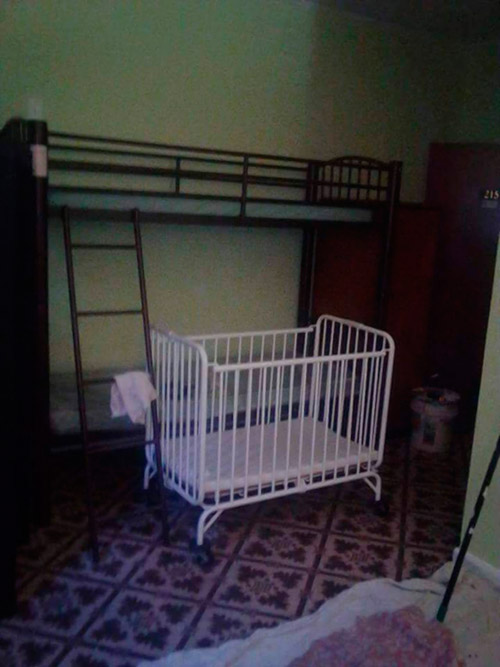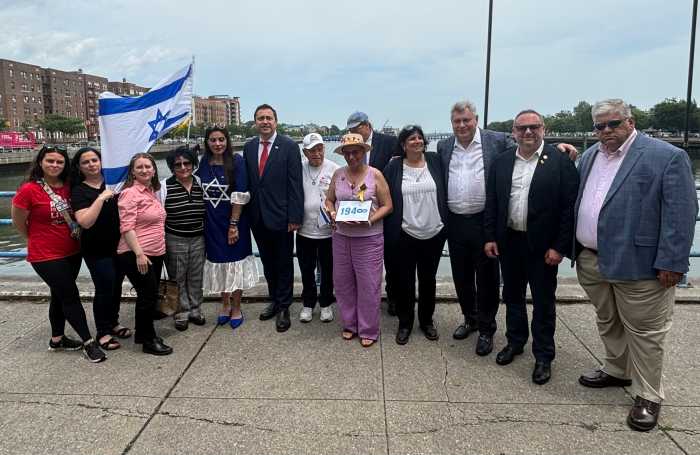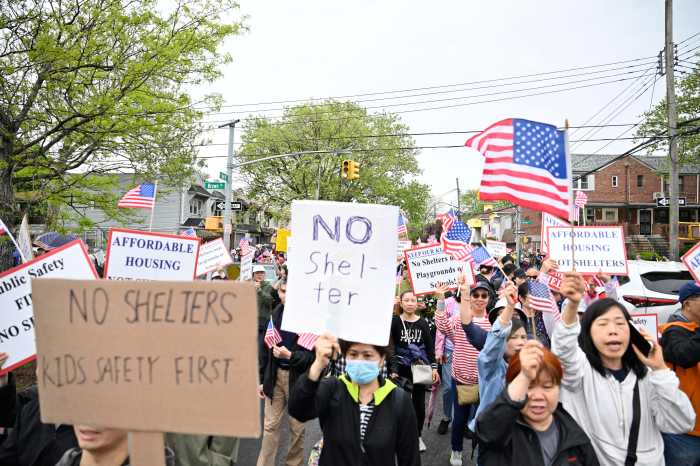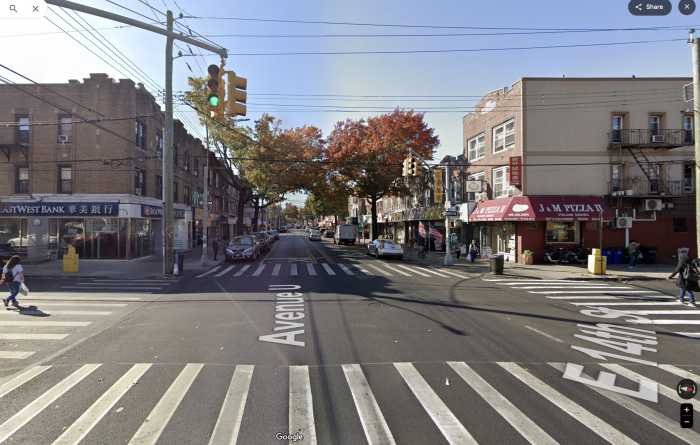The emergency homeless shelter that opened in October in Plumb Beach is unfit for the 23 families living there who are trying to get back on their feet, according to shelter residents.
Residents say the shelter — located in the former Lyghthouse Inn, an alleged hot-sheet hotel at the corner of Emmons Avenue and Bragg Street, is a dangerous dump that isn’t equipped for everyday life. Living in this shelter isn’t any better than being homeless, according to one resident.
“It is worse than living on the streets,” said a shelter resident with a back injury who asked to remain anonymous so he wouldn’t be stigmatized for being homeless when applying for jobs.
One major concern for residents is that the building is undergoing asbestos removal from now until May. Asbestos is not dangerous if left undisturbed, but when it is dislodged and disperses, individuals who are exposed to it could face serious health effects, according to the Department of Health.
The Department of Homeless Services said that there are air monitors in rooms where asbestos is present, and is following standard measures to keep the hazardous material enclosed during removal. The department said no families are at risk, and that it relocated all who requested to move.
Another concern for residents is the lack of resources. The building has no laundry facilities and is not equipped for cooking or food storage, according to those who live there.
The Department of Homeless Services said the food vendor makes two deliveries to the facilities to give residents three meals per day. It said breakfast and lunch are delivered in the morning but distributed to residents during mealtimes and dinner is delivered in the evening. But a resident said breakfast and lunch are both delivered to them at one time in the morning.
Because there are no refrigerators, a resident who has lived in the shelter since December said she ends up spending her own money on prepared food since she can’t save leftovers.
“I’ve spent $2,800 spending money for me and my child,” said the resident, who didn’t to give her name because she entered the shelter system to escape domestic abuse. “If I was in an apartment, I spend $300 for a month and we’re good.”
Residents also complain about a lack of support services to help families get back on their feet.
“They don’t have an exit plan to help you to become independent again,” said the man with a back injury.
The shelter, just a block away from an existing shelter, is one of the 23 emergency homeless facilities opened by the city last year. As an emergency shelter, it could open without consulting the local community board, but is supposedly only allowed to operate through this month. Now, however, the Department of Homeless Services said that after the initial, six-month term it can follow the city’s procurement process for a long-term contract to extend the life of the shelter.
The president of the Sheepshead Bay-Plumb Beach Civic Association said many families in the neighborhood lost their homes because of Hurricane Sandy, so locals understand the shelter residents’ need for housing. But because the city evaded community oversight in opening the shelter, and has been dodging questions from her group about the facility’s future ever since, she said she’s worried the city is trying to use under-handed means to make the temporary shelter into a permanent neighborhood fixture.
“We’re not getting any answers from them,” said Kathy Flynn. “We have no problem with people given a shelter and what they need — but do it the right way.”


























